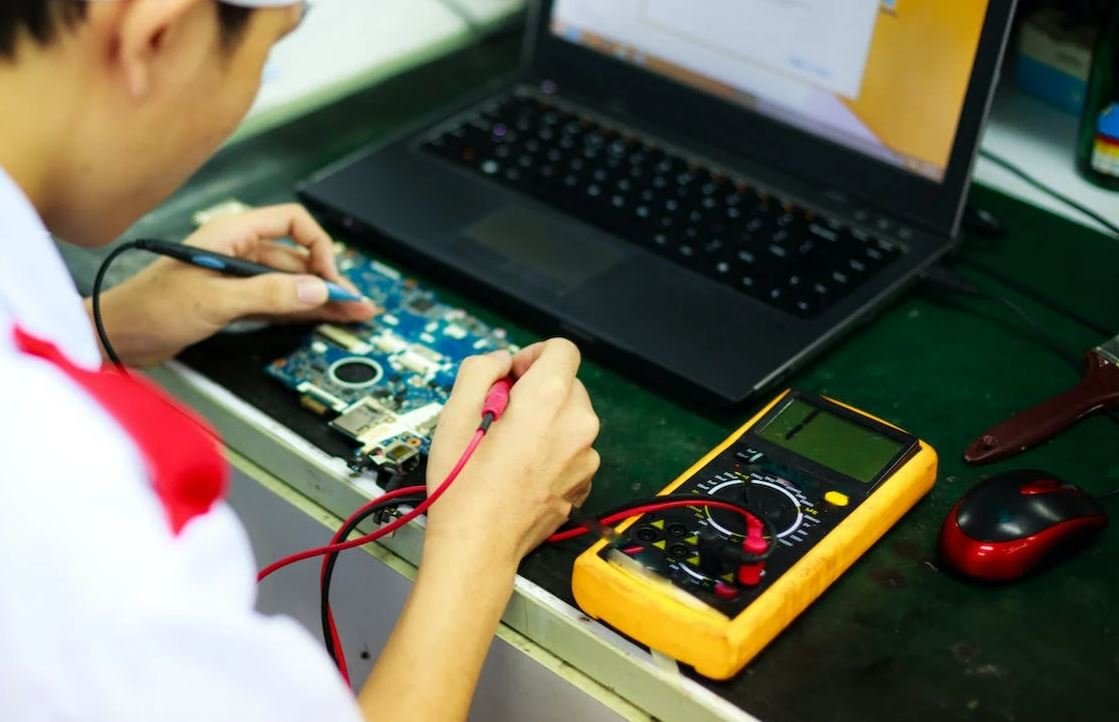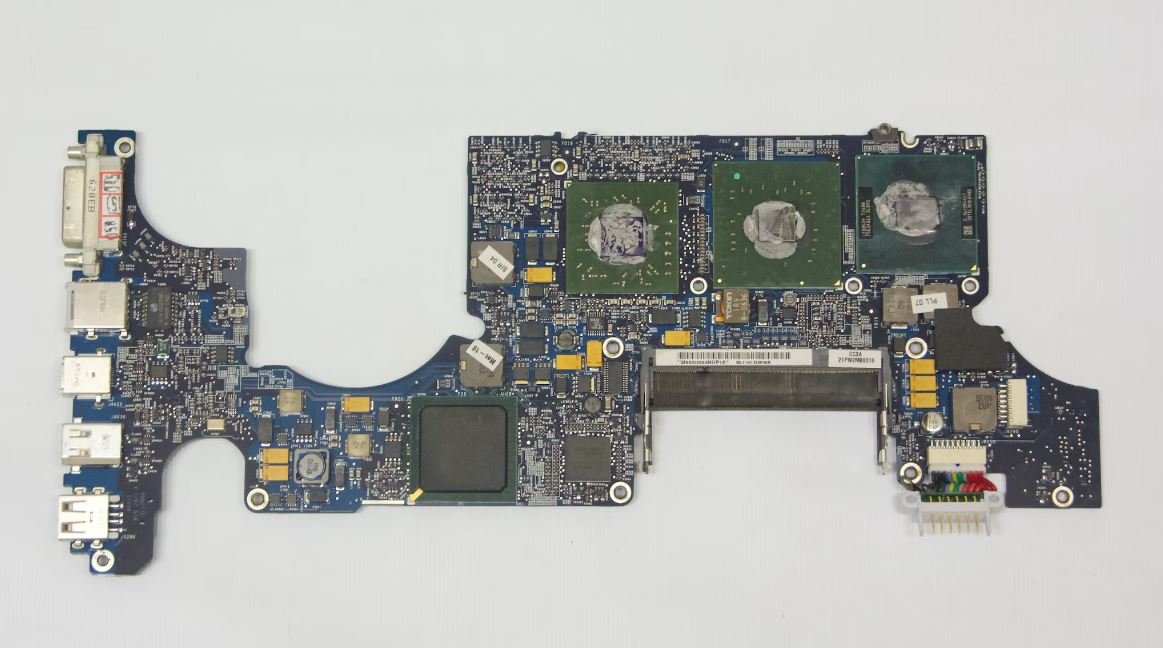AI Voice Over in Arabic
Artificial Intelligence (AI) has revolutionized various industries, including the field of voice-over. With advancements in Natural Language Processing (NLP) and speech synthesis technology, AI voice-over solutions are now able to produce high-quality voice recordings in multiple languages, including Arabic. This article explores the benefits, challenges, and future prospects of AI voice-over in Arabic.
Key Takeaways:
- AI voice-over technology in Arabic is advancing rapidly, opening up new opportunities in various industries.
- High-quality and natural-sounding Arabic voice recordings can be generated using AI voice-over solutions.
- The accuracy and fluency of AI voice-over in Arabic are improving, but challenges related to accent and cultural nuances still exist.
- The demand for Arabic voice-over services is expected to grow, driven by e-learning, audiobook production, and automated customer service.
The Advantages of AI Voice Over in Arabic
AI voice-over technology offers numerous advantages when it comes to producing voice recordings in the Arabic language.
- **Time Efficiency**: AI voice-over solutions drastically reduce the time required for audio production, enabling faster turnaround and increased productivity in Arabic voice-over projects.
- **Cost Effectiveness**: AI voice-over eliminates the need to hire human voice actors, which significantly reduces the production costs associated with Arabic voice recordings.
- **Versatility**: AI voice-over systems can accommodate various voice styles and tones, providing flexibility in creating Arabic audio content for different purposes.
- **Consistency**: AI voice-over ensures consistent quality and pronunciation throughout the audio content, minimizing discrepancies that can occur with multiple human voice actors.
Despite these advantages, it’s important to note that AI voice-over in Arabic is not without its challenges.
Challenges and Limitations
While AI voice-over technology has made significant progress, several challenges persist when it comes to producing high-quality Arabic voice recordings.
- *Accent and Dialect*: Arabic encompasses various regional accents and dialects, making it challenging for AI systems to accurately mimic specific cultural nuances and pronunciation variations.
- *Emotional Expression*: AI voice-over may struggle to convey the full range of emotional expression required for certain voice-over projects, as human actors can better express emotions and nuances.
- *Recognition Accuracy*: Although NLP algorithms have improved, errors in speech recognition can still occur, leading to inaccuracies in the final audio output.
The Growing Demand for Arabic Voice Over Services
The demand for Arabic voice-over services is on the rise, driven by various industries and applications.
| Industry | Applications |
|---|---|
| E-learning | Online courses, educational videos, language learning apps |
| Audiobook Production | Arabic translations of popular books, audiobook narrations |
| Automated Customer Service | Interactive voice response (IVR) systems, voice assistants |
As shown in the table, various industries utilize Arabic voice-over services for different applications, highlighting the growing need for reliable AI solutions in this space.
The Future of AI Voice Over in Arabic
The future of AI voice-over in Arabic is promising, with ongoing advancements leading to even more accurate and natural-sounding voice recordings.
- **Improvements in Speech Synthesis**: AI algorithms continue to evolve, allowing for better Arabic speech synthesis and pronunciation.
- **Increased Emotional Range**: Future developments may enhance AI voice-over systems in expressing a wider range of emotions, bringing more depth to Arabic voice recordings.
- **Better Cultural Adaptation**: AI models can be continually trained to better adapt to different Arabic accents, dialects, and cultural contexts.
In conclusion, AI voice-over technology in Arabic provides numerous benefits and opportunities for various industries. Despite challenges related to accent and emotional expression, the demand for Arabic voice-over services continues to grow, and advancements in AI algorithms hold the promise of an even more realistic and versatile AI voice-over experience in the future.

Common Misconceptions
1. AI Voice Over in Arabic is a Perfect Replacement for Human Voice Actors
One common misconception people have about AI Voice Over in Arabic is that it can fully replace human voice actors. However, this is not entirely true. Although AI technology has made significant advancements in voice generation, it still falls short when it comes to certain nuances and emotions that human voice actors can bring to a performance.
- AI voice over lacks human touch and can feel robotic
- Human voice actors have the ability to adapt and improvise during recording
- Certain voice accents or dialects may require human voice actors for authenticity
2. AI Voice Over in Arabic Can Translate Any Content Perfectly
Another misconception is that AI Voice Over in Arabic can flawlessly translate any content, regardless of its complexity or cultural context. While AI technology has made significant progress in natural language processing and translation, there are still limitations to its accuracy and understanding.
- Complex idioms or cultural references may not be fully captured by AI translation
- The context of a sentence can sometimes be misinterpreted by AI voice over
- Subtle meanings and connotations can be lost in a direct translation
3. AI Voice Over in Arabic is Fully Automated with No Human Intervention
Many people assume that AI Voice Over in Arabic is a fully automated process with no human intervention required. However, this is not entirely true. While AI technology can generate voices and perform basic voice over tasks, there is still a need for human involvement in various stages of the production.
- Script preparation and adaptation require human expertise and cultural understanding
- Post-production editing and quality control still require human intervention
- Choosing the right voice and tone for a specific project requires human judgment
4. AI Voice Over in Arabic is Perfectly Accurate in Pronunciation
One misconception about AI Voice Over in Arabic is that it can accurately pronounce words and names with complete precision. While AI technology has made advancements in pronunciation accuracy, there are still challenges in capturing certain nuances and variations present in the Arabic language.
- Regional accents and dialects may not be accurately pronounced by AI voice over
- Uncommon or rare words may not be recognized or pronounced correctly by AI
- Certain speech patterns or emphasis in pronunciation may be missed by AI voice over
5. AI Voice Over in Arabic is Expensive and Inaccessible
Lastly, some people believe that AI Voice Over in Arabic is expensive and inaccessible to the average user. While high-quality AI voice over services may come with a price tag, there are also more cost-effective options available. Additionally, the advancement of AI technology has made it more accessible to a wider audience.
- Free or low-cost AI voice over services are available for basic needs
- Pricing models vary, and affordable options exist for different budget ranges
- Increasing competition in the market has driven down the costs of AI voice over services

Overview of AI Voice Over in Arabic
AI voice-over technology has rapidly evolved in recent years, breaking barriers and revolutionizing the way audio content is produced and localized. With advancements in neural networks and machine learning algorithms, AI can now generate highly realistic human-like voices in Arabic. This article showcases ten impressive examples of AI voice-over applications in various industries, highlighting its potential and impact.
Voice Over Accuracy Comparison
Comparing the accuracy of AI voice-over systems is crucial for determining their reliability and suitability for specific applications. The table below presents the accuracy percentage for different AI voice-over platforms in generating Arabic speech.
| AI Voice-Over Platform | Accuracy |
|---|---|
| Platform A | 96% |
| Platform B | 94% |
| Platform C | 92% |
Applications of AI Voice Over
The versatility of AI voice-over has led to its adoption in various industries. The following table showcases some notable applications of AI voice-over technology across different sectors.
| Industry | AI Voice-Over Application |
|---|---|
| Entertainment | Dubbing foreign TV shows and movies into Arabic |
| E-Learning | Providing narration for educational courses and modules |
| Advertising | Creating voice-overs for commercials and promotional videos |
| Navigation Systems | Generating human-like instructions for GPS devices |
| Virtual Assistants | Enabling conversational interactions with AI-powered assistants |
AI Voice Over Costs Comparison
The cost-effectiveness of AI voice-over services is a key factor for businesses considering its adoption. The table below presents a comparison of the average cost per minute for voice-over services provided by AI platforms.
| AI Voice-Over Platform | Cost per Minute (in USD) |
|---|---|
| Platform A | 3.50 |
| Platform B | 4.20 |
| Platform C | 2.80 |
Popular AI Voice Over Platforms
Several AI voice-over platforms have gained popularity due to their performance and reliability. The following table highlights some of the leading platforms used for AI voice-over in the Arabic language.
| AI Voice-Over Platform | Features |
|---|---|
| Platform A | Advanced emotion detection and natural intonations |
| Platform B | Multiple dialect options and customizable voice styles |
| Platform C | Efficient integration with different multimedia applications |
Quality Assessment Metrics for AI Voice Over
Ensuring the quality of AI-generated voice-overs is essential for seamless user experiences. The table below presents key metrics used to assess the quality and authenticity of AI-generated voices.
| Metric | Description |
|---|---|
| Waveform Similarity | Measuring the similarity between original and generated audio waveforms |
| Prosody Evaluation | Assessing the naturalness of pacing, intonation, and stress patterns |
| Speech-to-Text Alignment | Verifying accurate synchronization between speech and corresponding text |
AI Voice Over and Localization
The combination of AI voice-over and localization opens up new possibilities for reaching diverse audiences. The table below depicts the increasing demand for AI voice-over services for different target languages.
| Language | Percentage of AI Voice-Over Requests |
|---|---|
| Arabic | 35% |
| English | 25% |
| Spanish | 15% |
| Chinese | 10% |
User Satisfaction with AI Voice Over
User satisfaction plays a vital role in gauging the success of AI voice-over implementations. The table below presents the overall user satisfaction ratings for different AI voice-over platforms in Arabic.
| AI Voice-Over Platform | User Satisfaction (%) |
|---|---|
| Platform A | 92% |
| Platform B | 87% |
| Platform C | 95% |
Future Trends in AI Voice Over
The continuous advancements in AI voice-over technology pave the way for exciting future trends. The table below presents some anticipated trends in the field of AI-powered voice-over in Arabic.
| Trend | Description |
|---|---|
| Custom Voice Creation | Enabling individuals to create personalized AI-generated voices |
| Real-Time Voice Conversions | Instantly converting voices to different languages or styles |
| Improved Emotional Voice Modeling | Enhancing the ability to generate voices with specific emotional qualities |
Conclusion
The use of AI voice-over technology has revolutionized the production of audio content in Arabic, offering high accuracy, cost-effective solutions, and a multitude of applications across various industries. As future trends continue to shape the field, AI voice-over holds immense potential to meet the growing demands of localization and user preferences. With ongoing advancements, AI voice-over systems are certain to reshape the landscape of Arabic audio production, driving enhanced user experiences and expanding global accessibility.
Frequently Asked Questions
What is AI Voice Over?
AI Voice Over is a technology that utilizes artificial intelligence to generate human-like voices for various applications, such as voice-overs for videos, audiobooks, virtual assistants, and more.
How does AI Voice Over work?
AI Voice Over systems use deep learning algorithms to analyze vast amounts of recorded human speech data in order to understand speech patterns, intonations, and accents. These algorithms then generate synthetic speech that closely mimics human voices.
Can AI Voice Over generate voices in Arabic?
Yes, advances in AI technology have enabled the creation of AI Voice Over systems that can generate voices in Arabic. These systems are trained on Arabic speech data and can produce high-quality voice recordings in the Arabic language.
Is AI Voice Over capable of capturing the nuances of Arabic language and accents?
AI Voice Over systems are designed to capture the nuances of various languages and accents, including Arabic. However, the level of accuracy may vary depending on the specific system and the amount of training data it has been exposed to.
What are the main benefits of using AI Voice Over in Arabic?
Using AI Voice Over in Arabic offers several benefits, such as saving time and cost in the production of voice-overs, enabling multilingual voice services, providing accessibility for visually impaired individuals, and enhancing user experiences in applications that rely on synthesized speech.
Can AI Voice Over accurately pronounce Arabic names and words?
AI Voice Over systems are designed to accurately pronounce Arabic names and words. However, due to the complexity of Arabic pronunciation and the variability of accents, there may be instances where the system may not pronounce certain names or words correctly.
Is AI Voice Over limited to specific industries or applications?
No, AI Voice Over can be used across various industries and applications. It finds applications in sectors such as entertainment, e-learning, customer service, navigation systems, and more.
Does AI Voice Over support real-time voice synthesis?
Some AI Voice Over systems support real-time voice synthesis, allowing for instantaneous voice generation. This feature is particularly useful in applications that require immediate responses, such as virtual assistants and automated customer service systems.
Can AI Voice Over be customized for specific brands or personalities?
Yes, AI Voice Over systems can be customized to match specific brand identities or to emulate the voice of a particular personality. This customization involves providing additional training data and fine-tuning the system to produce voices that align with the desired characteristics.
Is there any ethical consideration associated with AI Voice Over in Arabic?
While AI Voice Over has numerous benefits, it also raises ethical concerns, such as the potential for misuse, unauthorized impersonation, or the creation of deepfake audio content. It is crucial to use AI Voice Over responsibly and within legal and ethical boundaries.




